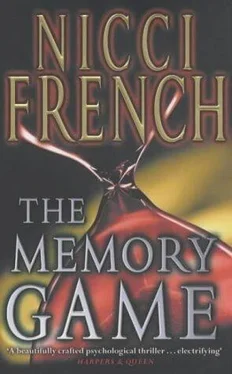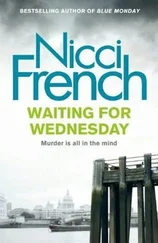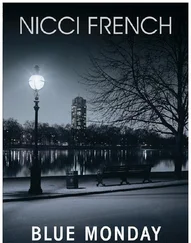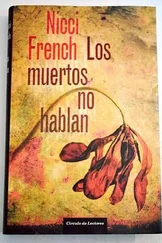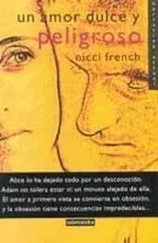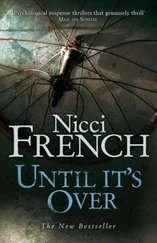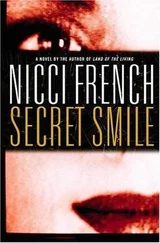Nicci French - The Memory Game
Здесь есть возможность читать онлайн «Nicci French - The Memory Game» весь текст электронной книги совершенно бесплатно (целиком полную версию без сокращений). В некоторых случаях можно слушать аудио, скачать через торрент в формате fb2 и присутствует краткое содержание. Жанр: Триллер, на английском языке. Описание произведения, (предисловие) а так же отзывы посетителей доступны на портале библиотеки ЛибКат.
- Название:The Memory Game
- Автор:
- Жанр:
- Год:неизвестен
- ISBN:нет данных
- Рейтинг книги:4 / 5. Голосов: 1
-
Избранное:Добавить в избранное
- Отзывы:
-
Ваша оценка:
- 80
- 1
- 2
- 3
- 4
- 5
The Memory Game: краткое содержание, описание и аннотация
Предлагаем к чтению аннотацию, описание, краткое содержание или предисловие (зависит от того, что написал сам автор книги «The Memory Game»). Если вы не нашли необходимую информацию о книге — напишите в комментариях, мы постараемся отыскать её.
The Memory Game — читать онлайн бесплатно полную книгу (весь текст) целиком
Ниже представлен текст книги, разбитый по страницам. Система сохранения места последней прочитанной страницы, позволяет с удобством читать онлайн бесплатно книгу «The Memory Game», без необходимости каждый раз заново искать на чём Вы остановились. Поставьте закладку, и сможете в любой момент перейти на страницу, на которой закончили чтение.
Интервал:
Закладка:
The plates were done, lined up in a gleaming row of white. Glasses done. I lifted a tray of disparate objects (matches, a set of keys, paper clip, pen, thimble, paper-knife, ear-ring, Remembrance Day poppy, screwdriver, black pawn from a chess set) and winced at the memory. Oh God, we’d played the Memory Game. Claud had organised it, of course, explaining the rules to a half-sozzled company (‘Memorise what’s on the tray, then I’ll cover it up, and you must write down everything you can, then we’ll uncover the tray and see who’s remembered the most objects’). It was a game we’d played a lot as children. One of the objects on the tray, staring up at a suddenly sober company, had been a photograph of Claud and me and the boys, taken years ago (By whom? I could no longer remember). Smiling, touching each other. That’s when Jerome had thrown over his chair.
I poured out a glass of port in a thick purple glug and lit a final cigarette. The rest of the mess could wait till morning. I took off my shoes, my ear-rings. Yawned. Giggled suddenly at the memory of Kim and Erica. The phone rang.
‘Hello.’ Who would ring at this time of night?
‘Mum.’ It was Jerome and he still sounded angry. ‘Never do that again.’
‘You mean you didn’t have a good time? What a pity – I was thinking of reconvening at New Year’s Eve.’
‘This is exactly what I needed.’
I was lying by green water, palm trees and thick plants all around, in a thick white towelling robe. We were drinking mango juice, and I was feeling more relaxed than I had done in a very long time. My muscles had unstrung, my bones felt supple, my skin soft, green light danced against my eyeballs. The winter sun, slanting in through the tall windows, stroked my bare legs. The echoey room was filled with low murmurs of women, like a harem without a master. I could feel my heart-beat smooth and comforting. Soon I would have a swim, then a massage. Then I would lie down again, and flick through women’s magazines, reading advertisements for sun lotion and lip gloss.
Kim had called me the evening before, when I’d been feeling wearily sad. She’d bought two day passes for The Nunnery, a women-only health centre, and wasn’t asking but insisting that I came along. I’d protested, but feebly, and at the sound of her voice, so matter-of-fact and familiar, my eyes had filled with tears. I’d felt as if, at last, I were coming unravelled; all my seams undoing at once.
When I’d put the phone down, it had rung again almost immediately. It was Catherine, from a payphone. Paul had come round, she said, and he and Peggy were quarrelling; they weren’t even bothering to keep their voices low. It was awful, awful, like the days before Paul had left the family for good. They were shouting at each other and it all had something to do with Natalie, and please please could I tell her what was going on. I couldn’t tell her because I didn’t know. I said something banal about Paul and Peggy loving her a lot, and she must never forget that, then realised that I was talking to her as if she were six, so stopped. But instead of being surly down the phone, Catherine started sobbing noisily. I imagined her leaning her beautiful skinny body against the grubby kiosk, and wiping her tears with her black T-shirt, her sharp knobbly elbows icy in the winter air. I muttered something, and she sobbed on. The money ran out on a gasping sniff.
When Robert and Jerome had been little, it had been so easy to comfort them. Even now, I could vividly recall how their bunchy bodies could be gathered up, heads tucked into my neck, my chin on their smooth crowns, their determined legs wrapped fiercely round my waist; how I’d croon nonsense as I wiped away tears that smarted on their flushed cheeks… My little darling… it’ll all be okay… Mummy’ll protect you… there, pigeon, there, humdinger… don’t you fret, don’t fret a bit… Mummy’s here, my sweet love… my darling one.
Then, slowly, they had stopped wanting me to touch them. One day, I’d realised they no longer got into bed with me in the mornings, that they closed the bathroom door. When something was wrong, they’d go to their rooms, and I’d have to fight against the urge to follow them, pretend that Mummy could still make it better. When Robert was bullied at school, and went around in a fog of mute shame, and it was only when I heard one little boy calling him sissy that with a punch in the gut I knew what was going on; when Jerome had his first sweetheart and sewed absurd felt hearts (so uncool) onto his jeans, and then she chucked him after one date, so we had to spend an evening unpicking them and he pretended to be indifferent, not to care, he winced at my sympathy; when Robert quarrelled with Claud about smoking, and neither of them could talk to the other for days, pompous gits, and I longed to shake them both, but instead I busied myself around them, and I thought, even then, what a waste of time this is. There were days when all I wanted to do was to hug them, touch them, my boys, my lovely sons – but they’d twitch embarrassedly, good humouredly: don’t be soppy.
Ever since they’d been born, they’d been leaving me. I remembered Mum, just before she died, saying: ‘The best gift I could give you was your independence. But you were always in such a hurry to go from me.’ Children are always in such a hurry to go. I remembered Robert, aged five or so, at the beach. His shoe lace was undone and he was crying because we’d left him behind. He stood, a little blocky shape on a great expanse of sand. I ran back, stooped down to help, and he pushed me away: ‘ I can do it. ’ They practise being grown-up for such a long time, and then one day you notice that they really are grown-up. Where had all that time gone? How had it happened that I was middle-aged and on my own, and never again would I know the swamping joy of holding a child under my chin and saying: Don’t fret, it’ll be all right, I promise you it’ll be all right.
I wept myself to sleep, great raw spasms of weeping, and felt as if something was breaking up inside me. In the morning – a great ice-blue sky and skeletal frost-covered branches – I pulled on a track suit, packed shampoo and Jane Eyre into a shoulder bag, and went to meet Kim. Now, lying side by side, eyes shut in the white and green space, I spoke dreamily. Today, to Kim, I could say anything at all. Words floated in the air between us, clouds of explanation. Water lapped, and green ripples danced across my closed eyes. My body was water; my heart had dissolved; emotion was running softly through me, like a dreamy river.
‘I feel I’m in trouble, Kim.’
‘This is Natalie?’
Kim held my hand, our fingers locked, our arms hanging between the sun-beds. Was this despair that I was feeling? Despair didn’t have to be vicious and hard; it could be like warm liquid filling up every crevice in my body.
‘It might have been a stranger, some random tragedy.’
‘Yes.’ My voice came out in a whisper.
‘Luke is probably the most likely suspect, even though he wasn’t the father of the baby. Maybe he killed her because he knew he wasn’t the father.’
‘Maybe.’
‘Whatever it is, it certainly isn’t your responsibility to find out.’
‘No, of course not.’
‘You couldn’t possibly have anyone else in mind? Darling Jane, you’re not going to make a fool of yourself.’
We lay a little longer in silence. I still had my eyes shut; the only part of me that felt solid were my fingers, where they clasped Kim’s.
I had a massage. A woman smelling of lemons, her dark blonde hair tied back in a smooth pony-tail, her feet bare, stood over me and dug her strong fingers into all my aches and pains. My last resistance was pushed up the channels of my body, out. My tears ran onto the couch, puddled against my cheek. I felt empty.
Читать дальшеИнтервал:
Закладка:
Похожие книги на «The Memory Game»
Представляем Вашему вниманию похожие книги на «The Memory Game» списком для выбора. Мы отобрали схожую по названию и смыслу литературу в надежде предоставить читателям больше вариантов отыскать новые, интересные, ещё непрочитанные произведения.
Обсуждение, отзывы о книге «The Memory Game» и просто собственные мнения читателей. Оставьте ваши комментарии, напишите, что Вы думаете о произведении, его смысле или главных героях. Укажите что конкретно понравилось, а что нет, и почему Вы так считаете.
